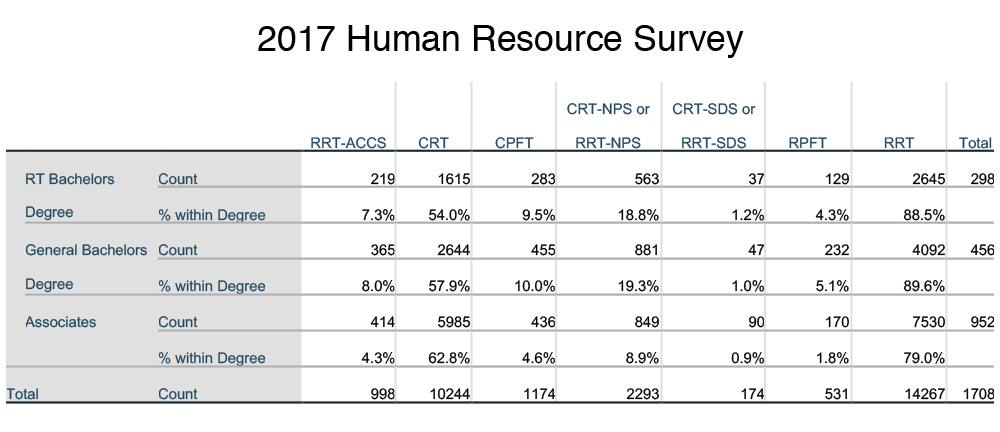
In 2015, the AARC issued a new goal calling for 80 percent of respiratory therapists to either have, or be working toward, a bachelor’s degree by 2020. We’re now just a little over a year away from that deadline. Why did the Association issue the goal and what does it mean for the profession?
AARC President Brian Walsh, PhD, RRT, FAARC, and President-elect Karen Schell, DHSc, RRT, RRT-NPS, RPFT, answer these questions and more —
Why did the AARC decide to issue the goal calling for 80 percent of RTs to either have or be working toward a bachelor’s degree by 2020?
Brian Walsh: We knew it would be a stretch goal, and one we hoped would stimulate a movement toward this important goal. We thought this would only be a 30 percent jump, and we added the point that they could be working on the bachelor’s degree.
Karen Schell: Movement is necessary for growth. By setting a goal on the horizon, discussion was started on how the profession could move toward the future and how we could meet the challenges ahead for the profession and our patients.
How will having more RTs with bachelor’s degrees help to move the profession forward in terms of job responsibilities?
Brian Walsh: Let’s start with the facts. Baccalaureate-prepared RTs get paid more, are more likely to have the RRT credential, have more advanced credentials — RRT-NPS, RRT-ACCS, etc. — and are more likely to be AARC members. With more advanced credentials, bachelor’s prepared RTs have a higher level of minimum competency, which is a good thing for our profession and patients. This allows RTs to take on additional and more complex roles.
Karen Schell: Education is the key to success. Increasing the education of our therapists is necessary to keep up with the advancements in health care. We see the professionals around us moving to higher education and we need to grow along with them to have a place in the ‘game’ and show our value.
How will increasing the number of RTs with bachelor’s degrees promote respect for RTs on the job?
Brian Walsh: We are often plagued with being a profession with the “weakest link” concept. This holds our profession back from really demonstrating our value, as we all need to be working at the top, not the bottom, of our scope of practice. As mentioned previously, bachelor’s degrees are associated with higher levels of competency. Additionally, there is also an association with level of education and safer care. If we demonstrate our value by providing safe and high-quality care, respect will be a natural outcome.
Karen Schell: Respect is earned. Education is earned. Individuals must find it within themselves to gain respect with increasing exposure to knowledge and demonstrate their value by improving their skills and competencies. Higher education provides a means to demonstrate willingness to grow as an individual and as a professional.
What do you think will be the likely outcome if the profession does not embrace the move to the bachelor’s degree entry and why?
Brian Walsh: Our profession could regress rather than progress. I believe it’s that important.
Karen Schell: Our profession needs to have a seat at the table. We need to keep moving forward and be on an equal playing field with other professions. We need to realize that in order to have a voice, we need to be present and show our value. Improving our education level can keep us at the table.





